Culture
They Say Sagars Are “Old School”. But I Think Being Old School Works: Director Shiv Sagar On His Family's Latest Ramayana Production
Arjun Narayanan
Nov 20, 2024, 06:57 PM | Updated Nov 22, 2024, 06:55 PM IST
Save & read from anywhere!
Bookmark stories for easy access on any device or the Swarajya app.
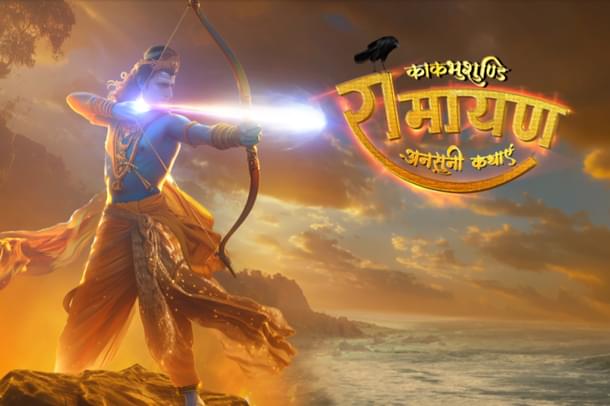
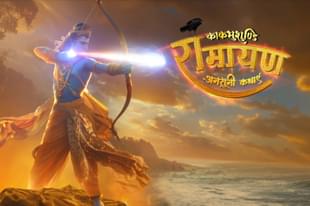
In 1987, the nation came to a standstill on Sunday mornings as people tuned into Ramanand Sagar’s Ramayan. While mainstream English media wrote off the serial initially as a glorified highschool musical, the serial picked on and created a wave of popularity that not only changed television but Indian politics for good. Actors became gods and homes became temples.
The serial has been aired in over 65 countries since then and remains on air since its initial telecast on January 25, 1987.
Ramanand Sagar’s grandson Shiv Sagar returns with the offering of the grand epic for the small screen with Kaakbhushundi Ramayan—The Untold Stories, which will start airing on Doordarshan from November 18, 2024.
He talks to us about the making of an old story for a new generation.
Ramanand Sagar’s Ramayan has stood the test of time and even had a dream run on television during the pandemic. Why did you decide to make another Ramayan in 2024?
When my grandfather Ramananad Sagar made Ramayan in the 1980s, television was still new in Indian homes. We were among the first to use the bluescreen for special effects in a mythological and the genre itself was new to television. The Wadias had done some good work in this genre in cinema. But what television could offer then was rudimentary and there were severe budgetary constraints.
We saw a lot of people make the Ramayan in the last few years and some of them were disappointing. We thought why don’t we make the Ramayan when we have already done it in the 80s! Technology has expanded today and production values are far superior. We felt it was time for a new Ramayan for the new generation.
We have retained the essence of the old epic. This time, we are bringing some untold stories from the Ramayana. The war scenes have been choreographed better and we have smarter camera movements. We have also used AI to recreate the voice of Papaji (Ramananad Sagar) narrating the epic in the first episode, just as he did in 1987.
They say Sagars are “old school”. But I think being old school works. We have kept the bhakti ras of the old Ramayan intact. The Ramayana is a poem and on television the emotion flows from music. We cannot envision Ramanand Sagar’s Ramayan without the music of Ravindra Jain. We have also created several songs and retained the magic of chaupais but in a modern packaging.
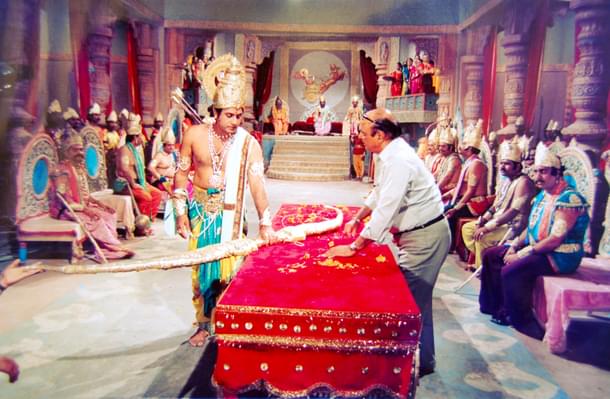
The music has been given by Surya Rajkamal, the son of Rajkamal ji, who gave the music for BR Chopra’s Mahabharat. My father Prem Sagar has worked very closely with the music director in this serial. We cannot match up to the work of Papaji. It is eternal and cannot be recreated. We have just tried something in our capacity.
Why do you think filmmakers take to Ramayan once every few decades? What’s it about the story that makes it click across generations?
The Ramayana gives our civilisation the yardstick of values and emotions. The story has been valid for the past 7,000 years and it will be valid even for the next 7,000 years. It is sanatan. The tech and form of the narration might change with time but it is the essence, the soul of India.
Every medium is different and with television, you need an episodic format. In a movie hall, you are absorbed uninterrupted for three hours. Television is different. There are restrictions on budget and at home there are several distractions. So we have to make Ramayan for daily viewing.
Our older Ramayan came at 9 am on Sundays. Today the prime time concept has changed. We have the episodes airing at 7:30 pm, with repeat telecasts at 10 pm and morning 9.30 am from Monday to Friday. The idea is to reach people in every possible slot.
We also have the episodes available on OTT where people can watch it at their convenience.
Arun Govil, Dipika, Dara Singh and Sunil Lahri are names imprinted in our minds as Ram, Sita, Hanuman and Lakshman. How challenging was it to cast actors for Kakbushundi Ramayan?
It was a nightmare to find the right artistes. We didn’t want known faces. We went through lakhs of profiles to get the perfect Ram.
When we gave the casting call, our WhatsApp exploded with messages and we couldn’t keep up. I think since we have already done the Ramayan before, the idea excited actors across India.
Finally we came across the profile of an IT professional called Pawan Sharma who had come to Mumbai to become an actor, failed in finding work and went back to Jaipur to pursue his IT career. We liked the look of his face but wanted to see if he could act. We called him over to Mumbai and were happy to note that he fit the bill for Ram. Pawan had a calm personality and just needed to be himself to play the role. Arun ji had done many films and also some television before he played Ram in 1987.
While casting Ravan, we wanted a handsome actor to play it who could bring out the personality of Ravan. We had worked with the actress who is playing Sita in our serial Vaishno Devi and she had played Lakshmi in it. Lakshman is also played by someone from Jaipur and has prior experience as an actor.
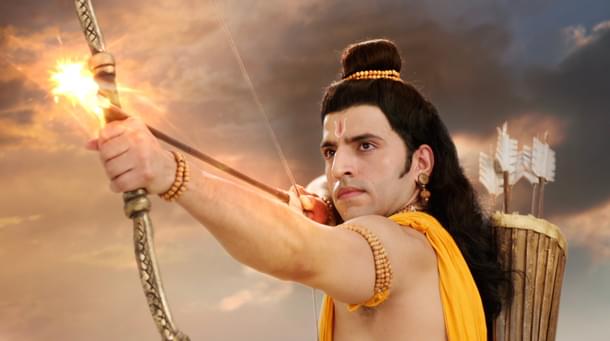
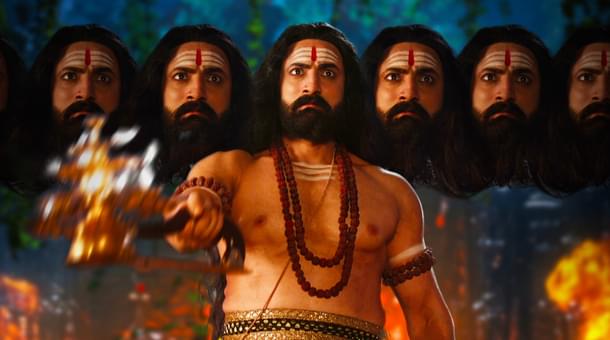
The Sagars are known for discovering talent and bringing fresh faces to the screen. From Swapnil Joshi, who played young Krishna in Shree Krishna (1995), to Vikrant Massey as Veer in Dharam Veer (2008), and Gurmeet Choudhary in Ramayan (2008), the Sagars have introduced many successful actors.
Was it for nostalgic value that you approached Doordarshan for this serial?
There is nostalgic value attached to it but when we approached them, we were already toying with the idea of a non-fiction show on the places Ram visited. We pitched the untold stories from Ramayana and they gave us a go-ahead.
Doordarshan gave us a lot of creative freedom as they have a lot of respect for our family. As of now, we have a contract of 52 episodes of one hour each. Doordarshan is an underdog, a sleeping giant. The day it wakes up, there will be fierce competition for the other channels. They actually have better numbers than what gets projected. They have been revamping their team and are lining up new shows.
Fauji 2 is also going to be aired soon on DD.
We also approached Rohit Shetty and Ajay Devgn while promoting the show. Rohit’s father has worked with Papaji in a lot of films and Ajay has a lot of regards for Papaji as well. It was very sweet of them to promote the series .
Why did you choose Kakbushubdi as the narrator of the story?
Our itihasa puranas have the concept of a multiverse in many of their stories but nobody seems to have explored them cinematically. The divine crow Kaakbhushundi has seen the Ramayana 14 times in parallel universes. We have shown how he witnesses them and sometimes becomes a part of the stories as well. So in one Ramayana, the Shravan Kumar story is going on and in another, Ram has just been born. We have spent some time exploring the childhood of Ram as Ram Lalla.
What texts have you referred to while bringing out the untold stories?
Apart from the Ramcharitmanas and the Valmiki Ramayana, we have referred to the Adhyatma Ramayanam, Kritivas Ramayana and several puranas. We expanded our research while making this.
Think of it, when Ram was born, Ravan was already around for over 10,000 years. His crimes had touched their peak when Vishnu decided to incarnate on earth. We are exploring many stories of Ravan. Why did he not attack cities like Ayodhya and Mithila? How did he lose to Vali and Kartavirya Arjuna. We have also referred to Acharya Chatursen’s Vyayam Rakshamah to explore the character of Ravan.
The audience were highly impassioned in 1987. There are several unbelievable stories of fandom for the show from that time. How are you reaching out to an audience with a shrinking attention span?
We are catering to the core audience of Ramayan, which is still the traditional rural audience. We have to see how Gen Z responds to this work. Which is also why we decided to have this on OTT because today many homes don’t have a cable or DTH connection anymore and just have a smart TV. Many don’t even have that and watch whatever they want on a laptop.
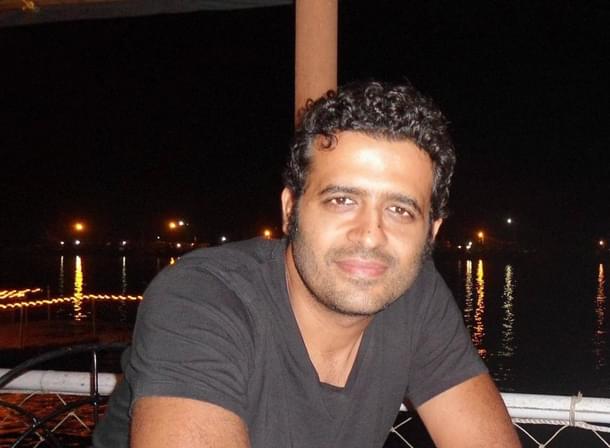
Kaakbhushundi Ramayan will resonate with the younger generation. The re-telecast of Ramayan during the lockdown already demonstrated this. Young people are increasingly searching for roots and traditions in a world filled with turmoil, and Ramayan is a story that speaks of peace and values. Also, I believe papaji’s Ramayan had blessings from a higher force. Else this kind of monumental impact across generations would not have been possible.
How many filmmakers have made the Ramayana since then and yet, nothing seems to have stuck on. Also, we should remember he was a mature filmmaker when he made it, having done over 50 films prior to that. He knew the epic inside out.
Arjun Narayanan is the founder of Simply Stories. He is a Film Researcher, Journalist, Podcaster, and Content Marketer. He tweets at @madraswallah, mostly about cinema and culture.





